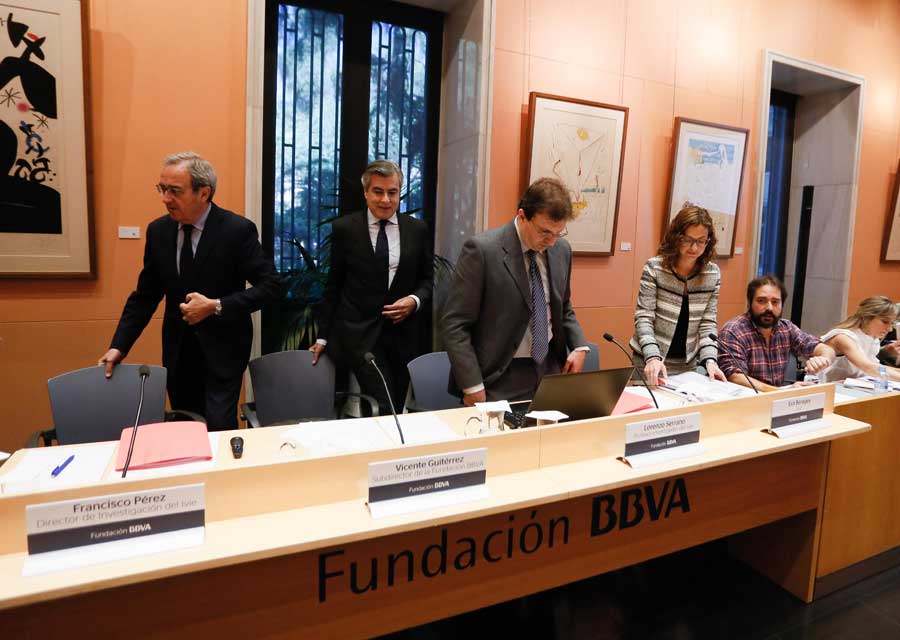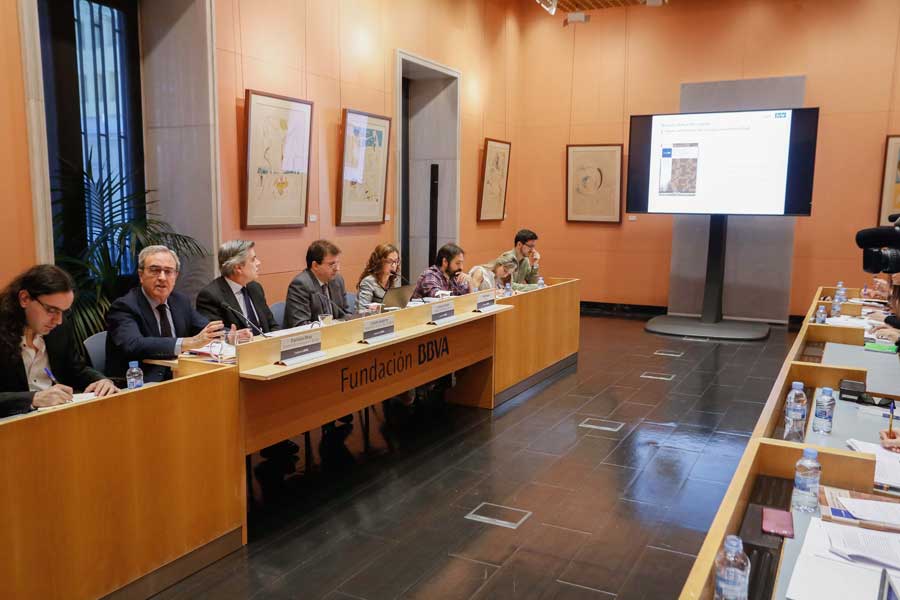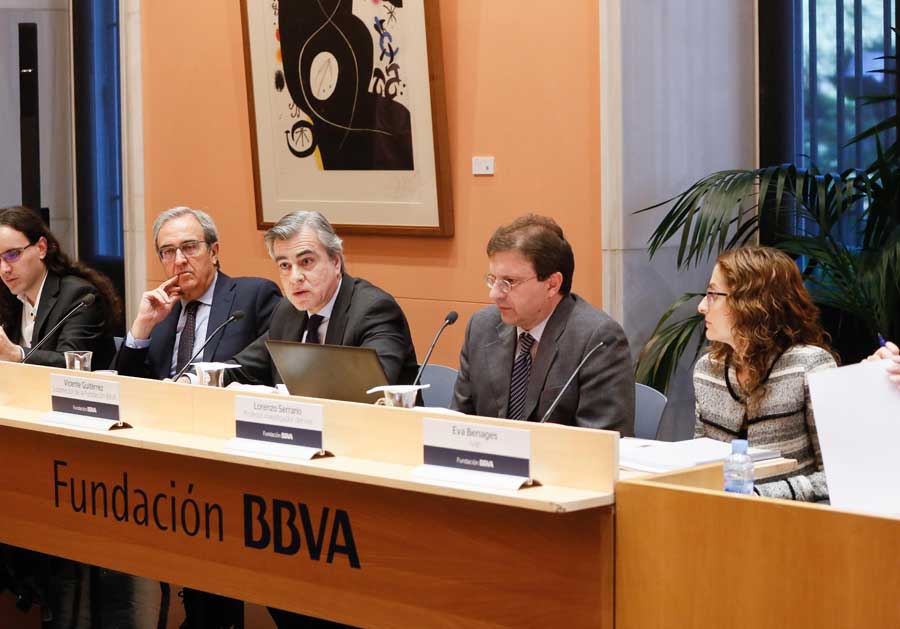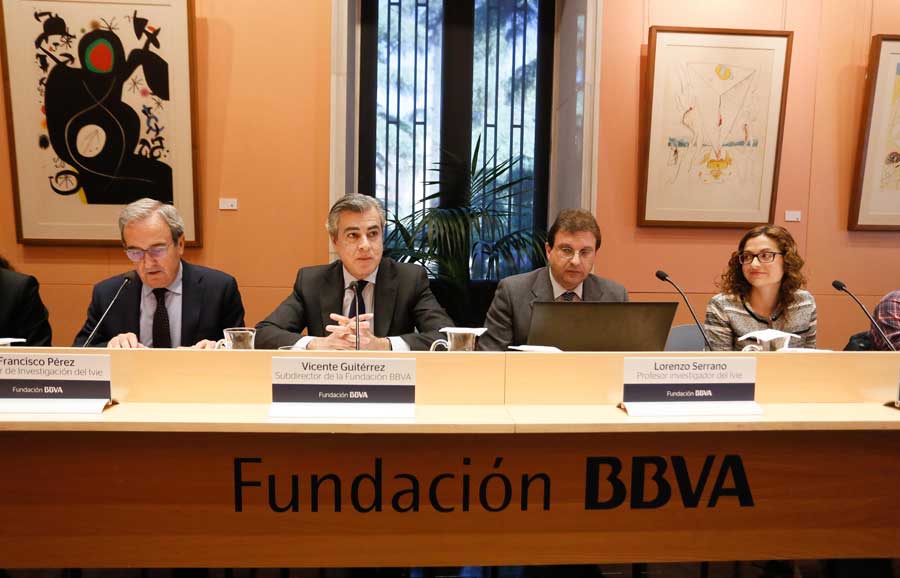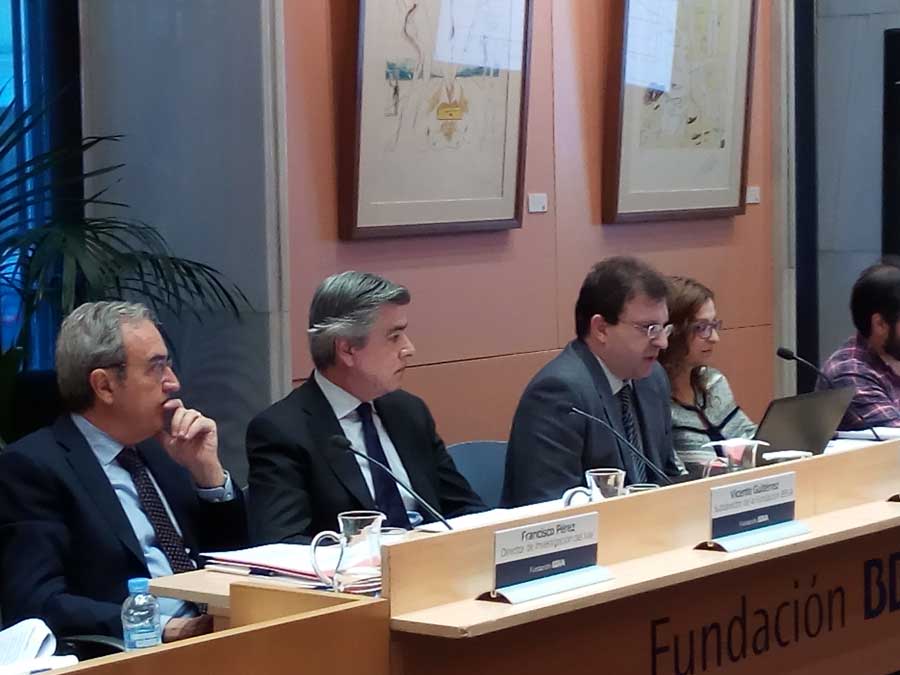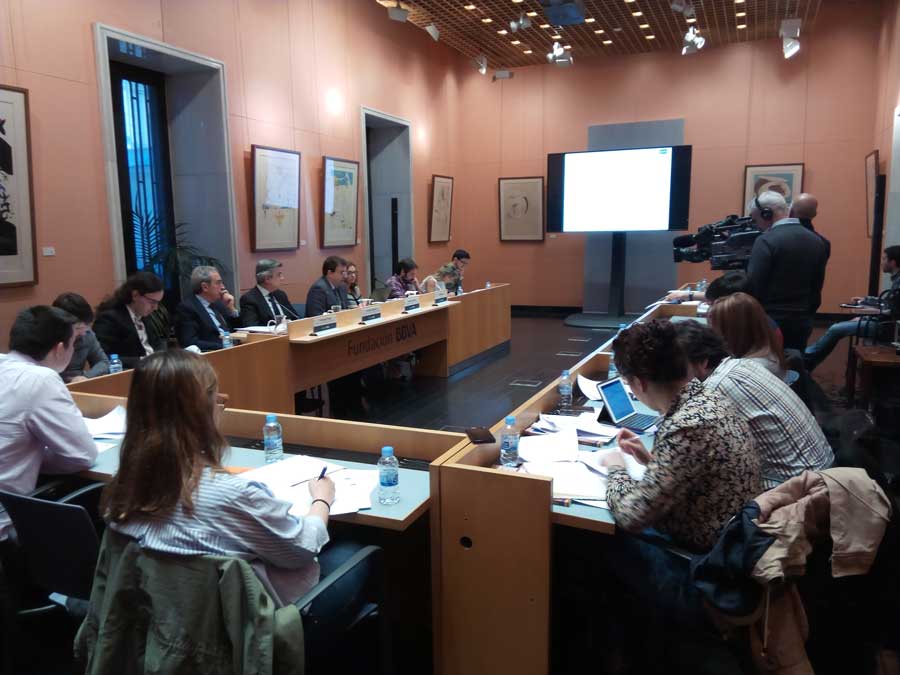News
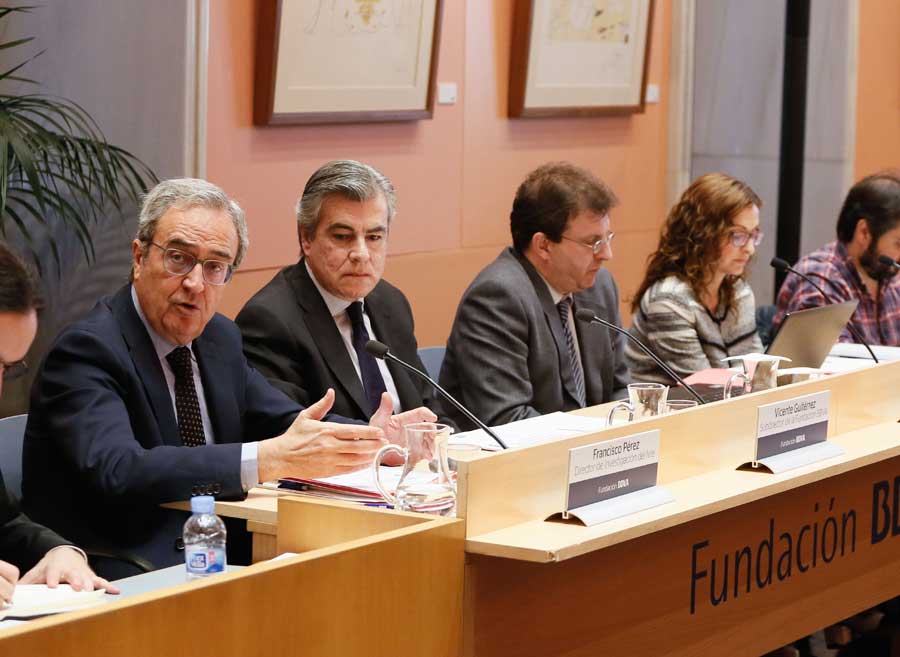
Capital productivity has decreased at a 2% annual rate in the 21st century due to investments in unproductive assets
With the crisis, the investment pattern has shifted towards assets that potentially generate more value such as intangibles and machinery
The Ivie and BBVA Foundation have presented the study Acumulación y productividad del capital en España y sus comunidades autónomas en el siglo XXI(Capital accumulation and productivity in Spain and its autonomous communities in the 21st century), carried out by the Professors of the University of Valencia and Ivie Researchers Lorenzo Serrano, Francisco Pérez, Matilde Mas and Ezequiel Uriel. The report, based on information from the capital stock database, reveals that capital productivity has dropped in Spain 27% during this century, representing a 2% annual decrease.
Also, labour productivity has not grown at the expected pace, considering the improvements in capital endowments per worker and the increase in experienced qualifications. Over the past two decades, labour productivity has lost 10 percentage points compared with more advanced economies and, currently, Spain’s level is 80% that of the United States.
This disadvantage cannot be attributed to lower capital endowments per worker, since they are similar to other advanced economies. Therefore, problems arise from low capital productivity, largely, from over-investing in unproductive real estate assets during the expansion years, prior to the crisis. These residential and non-residential assets are long-life assets that remain on firms’ balance sheets, but represent unused capacity that does not generate income.
Since 2008, with the onset of the crisis, there has been a shift of the investment pattern towards more productive assets, such as machinery, ICT and intangibles (i.e. R&D), with higher potential to generate value added. However, despite lower investment efforts made in unproductive intangible assets, Spain’s levels are higher than other countries. On the other hand, investments in intangible assets that favour productivity advancement have a lower weight in Spain (2.8% of GDP) than in France (5%), United States (5%) or Sweden (6.3%).
In order to become more productive, emphasis is placed not only on improving labor productivity, but also capital productivity. In addition to educational improvements, including workforce training offered by firms, the study advises paying special attention to a more efficient use of capital. First, through the loss of weight of non-performing assets due to their accelerated depreciation and, secondly, through the growth of new investments made towards assets which generate more added value.
Main conclusions
- Capital productivity has dropped 27% during the 21st century and is the main cause of the decline in the relative efficiency of the Spanish economy
- Labour productivity progresses at a slow pace, losing 10 points with respect to the U.S.
- Unproductive investments, particularly made in real estate assets, have had an intense and long-lasting effect on capital productivity
- In recent years, Spain moves to a new more productive pattern of investment: investment in machinery already exceeds investment in housing and investment in intangible assets is double the amount at the beginning of the century
- Progress towards this new pattern of capital accumulation is different among Spain’s autonomous communities; Madrid stands out with 25% more productive assets, such as R&D and ICT.


